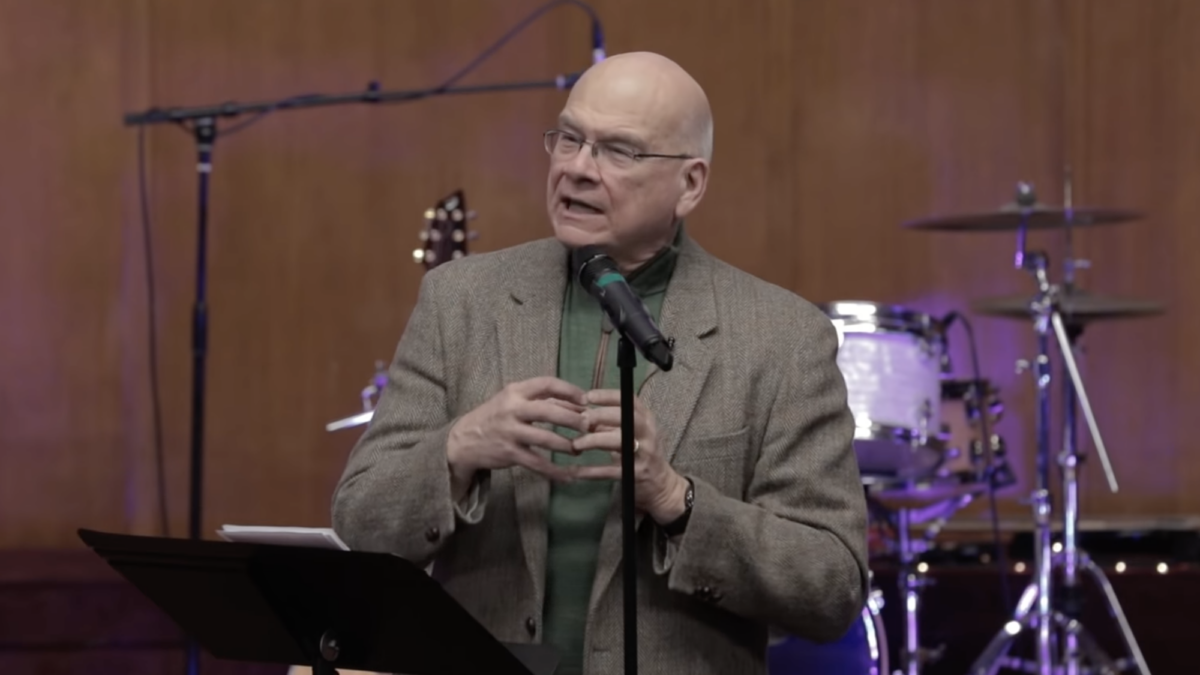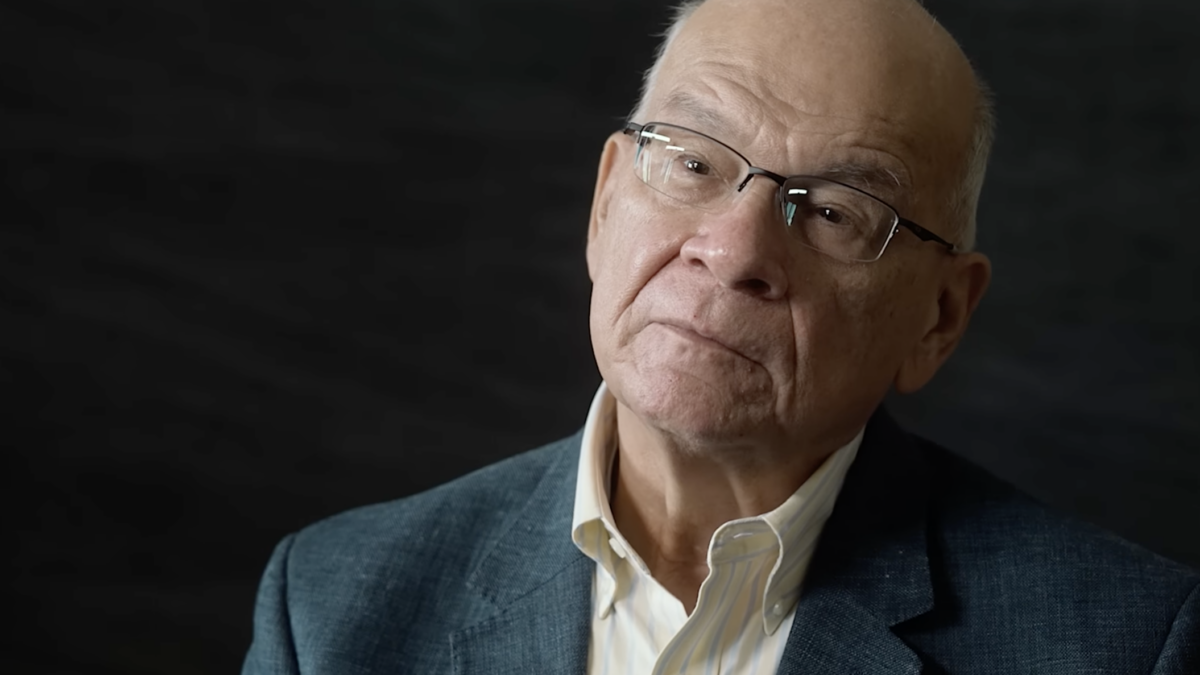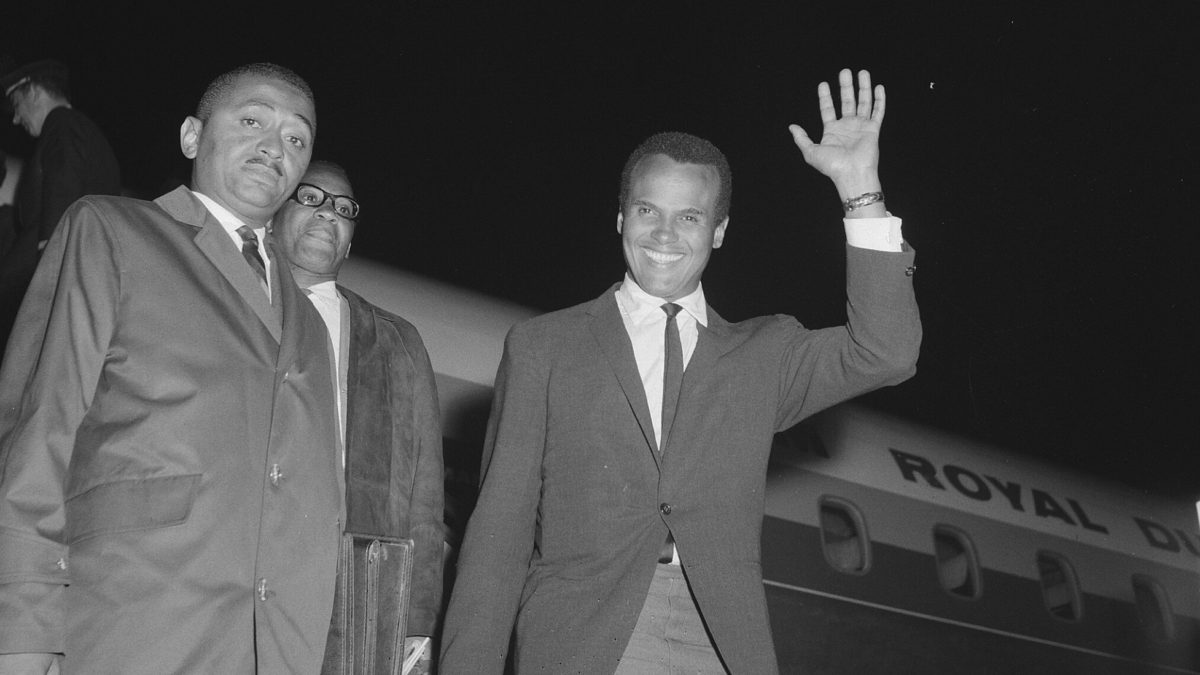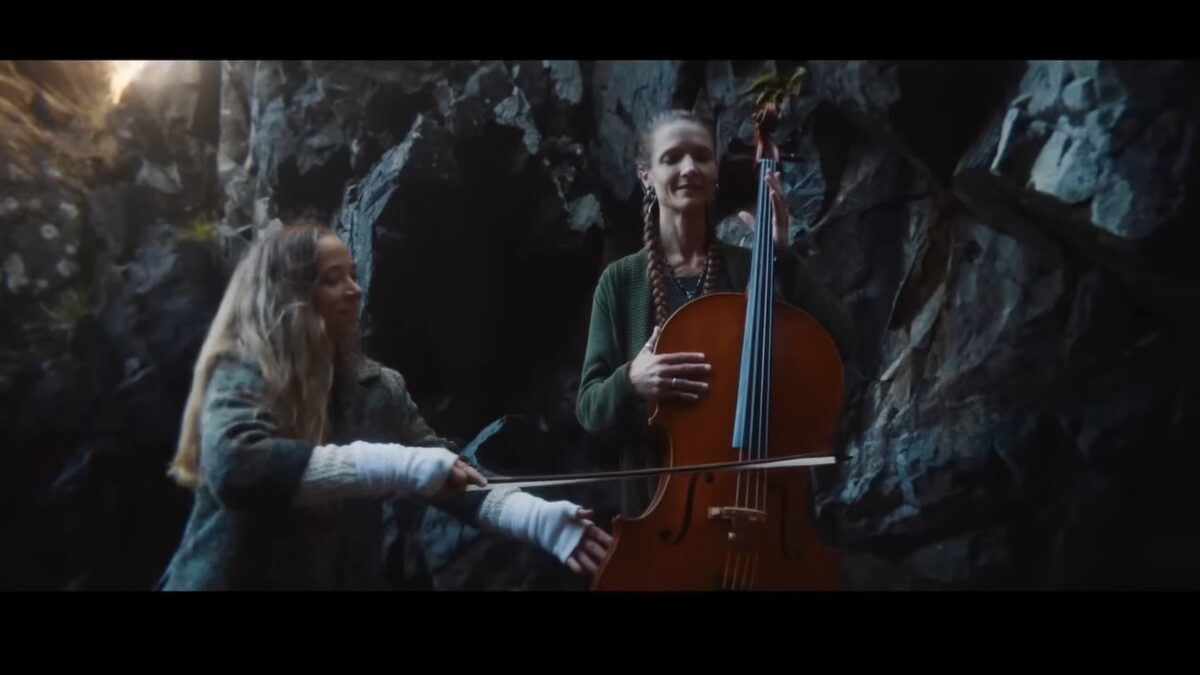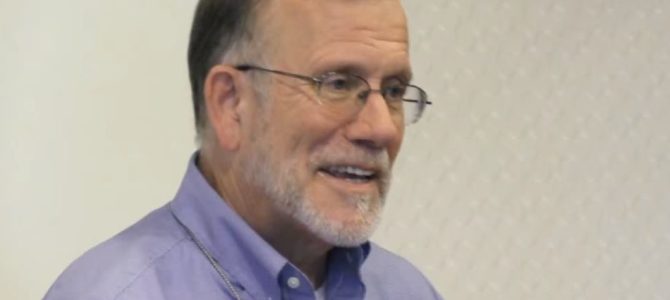
Mike Cromartie’s neck-tie story was the stuff of legend, as anyone fortunate enough to have called him colleague or friend will remember. In 1978, Mike was two years out of college, and had just begun a four-year post as research assistant to Chuck Colson, President Nixon’s “hatchet man” whom Mike met in Chattanooga at a book signing for “Born Again.”
Several months into the job, he traveled to Denver with his new boss, and while Colson met privately with a donor, Mike returned to a hotel room to tune into a basketball game. (He had played college ball, and later worked one full season as Hoops, mascot to Philadelphia’s 76ers.)
“Without warning,” Mike recounted, with energy rising, “three burglars shoved open my hotel door, pushed me down, took my watch, and stole all the cash I had in my wallet. But apparently they picked the wrong guy: I had $33 to my name, and some vitamins. Frustrated, they used my own neck-tie to tie me to the dresser, and took my dress shoes, clothes, and two other ties.”
“Literally, it was a mugged-by-reality experience,” Mike would tell his listeners, with a flash of anger, hat-tipping Irving Kristol’s famous description of a neoconservative. “It shook me to the core.” Mike’s mother was the first president of the Democratic Women of North Carolina, and he spent time living on a liberal Christian commune, having found faith in high school just after his parents’ divorce.
“So there I was, getting more and more mad. As these crooks were leaving, I said to one of the guys, ‘Hey man, at least leave me the neck-ties! I gotta work tomorrow morning!’”
Fighting back, an almost elvish humor, and staying in the game—this was vintage Mike Cromartie, even in the first months of his nearly four-decade career in the nation’s capital.
Staying the Course
In 1985, Ernest Lefever hired Mike to direct an evangelical studies project at the Ethics and Public Policy Center. For 33 years, Cromartie stayed the course, expanding the project’s impact but never leaving that desk.
In 1999, Cromartie became EPPC’s vice president; in 2004, President Bush appointed him to a six-year term on the U.S. Commission on International Religious Freedom. One year later, his colleagues elected him its chairman. During those years he edited 15 books, serving as a senior fellow for The Trinity Forum, and as a senior advisor to the Pew Forum on Religion and Public Life.
Mike’s influence increased by paying attention to the gulf that exists between secular elites and religious Americans, particularly in journalism—and by asking what he could do about it. In the 1990s, a New York Times reporter called in to ask about a sex-and-culture debate underway among Southern Baptists (with its 16 million members). When Mike cited Ephesians to help explain the denomination’s framework, she responded: “Wait, what was that book again—who’s the author? Who’s the publisher?”
That helped spark a big idea Mike launched and sustained for 19 years: the Faith Angle Forum. He wanted to entice small cadres of journalists, 20-25 people at the top of their field, to a retreat for two to three days to hear top scholars discuss a cutting-edge field that informs journalist reporting. Topics would cover religion, the cultural landscape, even the big, enduring questions. It would need to be all-expenses-paid, and to attract journalists at the top of their game so people wanted to be in the room.
Mike pulled together a masterful steering committee, carefully tracked emergent trends, and got to work after the Pew Charitable Trusts invested in a 10-year launch. Over time, 5-10 more foundations (including the one where I work) supported Faith Angle’s work. More than 240 journalists participated, and the result has been a kind of quiet, rising tide of articles that more accurately reflect the nation’s religious composition, beliefs, and culture.
A Relational Approach to the World
A 2013 Christianity Today profile and a 2014 article in Philanthropy Magazine highlight fascinating examples of journalists whose reporting reaches millions of listeners or readers, who became better informed about evangelicals, Islam, Catholics, Judaism, and changing religious trends through Faith Angle.
If that sounds dull, Mike’s relational gifts and unique personality were always at work. Each journalist was recruited personally (as Kathleen Parker retells), and Mike was a masterful emcee, having moderated conferences in EPPC’s small conference room since the 1980s. When one journalist asked Rick Warren in 2005 to identify which participants at the table would be damned for eternity, Cromartie interrupted: “Questions about eternal destination are best handled over the cocktail hour soon to follow.”
Faith Angle took place twice a year, initially in Maine and then in Miami. Between formal gatherings, Mike took countless journalists to lunch, making himself (or others) available to answer their questions; he truly served them. When I participated in a 2015 forum, Mike left a handwritten note in the hotel room of each attendee, including a cell phone number.
It was more than a one-sided love-fest: conservatives and liberals, believers and unbelievers were welcome to the table. The late Christopher Hitchens, a self-described “anti-theist,” was a speaker one year, and returned as a participant. As The Atlantic’s Jeffrey Goldberg described Mike in a tweet: “Loved journalists. Loved Jesus and Christopher Hitchens, simultaneously.”
Mike Cromartie’s Abiding Joy
Carl Cannon served on Faith Angle’s steering committee, and offered this reflection about Mike:
I once read that Mother Teresa said a Christian’s first obligation is to smile. I inferred that her idea was that if this is working for you – believing in Jesus – it ought to make you happy. A smile, in other words, fits St. Augustine’s description of the sacraments: an outward and visible sign of inward spiritual grace. Mike took this to a whole other level. He never employed a smile when a laugh would do, and didn’t stop at laughing when a guffaw was in order.
Everyone who knew him knew Mike’s laugh—which wasn’t showmanship. It instead came from what Mike termed in his later years “an Augustinian sensibility”: a deep conviction that the City of Man and the City of God are not yet in harmony with one another, but that we can nonetheless pursue proximate justice, with courage and joy. We live in a kind of exile, between two worlds, Mike wrote for the C.S. Lewis Institute, meaning that we can go about our daily work without an all-or-nothing approach. Evil exists in the world, but we can still confidently practice faithful presence, without pretending all the world’s needs are resting on our shoulders.

Or, as David Brooks sums up Mike’s modesty and work, “You can complain or you can be helpful. Mike has chosen to be helpful.” To the very end, those of us privileged to visit or talk with Mike observed this faithful joy. “Pray like a Pentecostal!” he would ask friends. And as he told Politico’s Dan Lipmann (a frequent Faith Angle attendee), even last month Mike kept up his daily morning routine: “Pray. Read the news. Then pray all the more!”
One other consistent trait Mike incarnated was his genuine interest in young people. “When you get to DC, find Michael Cromartie—he’ll help you,” one friend recalls. For many of us (myself included), this was true. While many inside-the-Beltway types tired of meeting young newcomers, preferring instead to climb the DC power ladder, Mike played by a different set of rules.
His underlying joie de vivre shines through remarkably in this week’s Facebook posts to Mike’s and his son Ethan’s pages. Some speak of dancing (“how many sixtysomethings do you know who loved the moonwalk as much as Mike?”), others of laughter, or being welcomed on countless occasions into the Cromarties’ home.
On Monday, Mike died after battling for two years an aggressive form of stomach cancer, surrounded by his wife Jenny and his children Ethan (30), Eric (28), and Heather (25). For them and for us, it was too soon. Yet one can’t help but think the stories, raucous laughter, and even the dancing in heaven just got richer.


